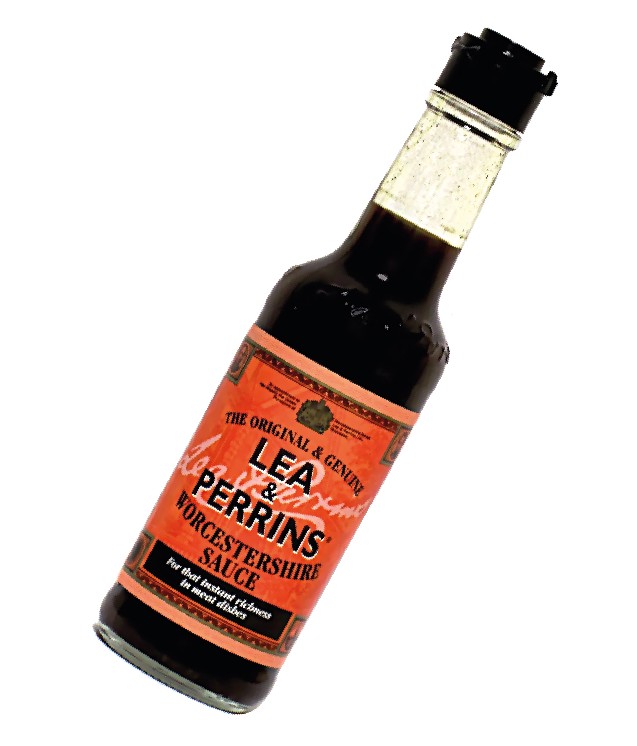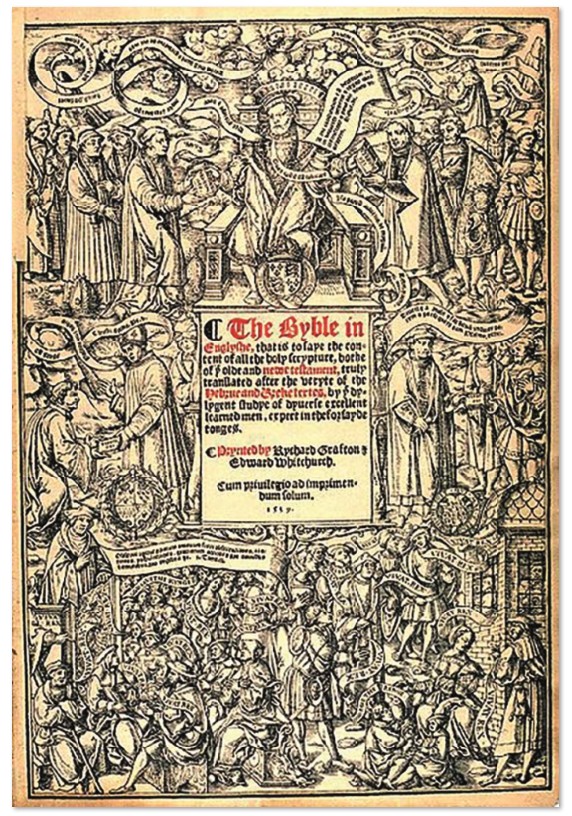Worcestershire Sauce – the dark brown savoury condiment that was invented by Lea & Perrin in the 19th Century and is now exported and loved throughout the world. That’s the first thing that comes into my head when I think about this city.
It is also known as the ‘faithful city’, because twice during the English Civil War (in 1642) it found itself trying to support King Charles I’s Royalist army against Oliver Cromwell’s Parliamentarian Roundheads.
But over a century before that, two seemingly minor events occurred which changed the course not only of English history, but that of Europe and possibly the rest of the world.
William Tyndale
In 1521 the Chancellor of Worcester Cathedral, John Bell, was reprimanding another man for his behaviour. The clergy of Gloucestershire had complained that this man, William Tyndale, had been teaching the Bible in English, which was against the Pope’s law. Tyndale was the brilliant linguist and ardent Bible scholar, who was working on his seminal translation of the Bible into English.
John Bell said, “We had better be without God’s Law than the Pope’s.”
Tyndale replied,”I defy the Pope and all his laws—if God spares my life, ere many years, I will cause the boy that driveth the plough to know more of the Scriptures than thou doest.”
Eventually Tyndale went to Europe to carry on his translation, and taking advantage of the newly invented printing press he started to distribute the parts of the Bible he had translated. These versions were smuggled into England, and although many were intercepted and burned, many more found their way to the general population. There was a thirst to know what the Bible actually said, as opposed to what the Church said it said.
Before he could finish his work Tyndale was captured and burnt at the stake in 1536, with these words on his lips: “Lord, open thou the King of England’s eyes!”
King Henry VIII
In 1502 Prince Arthur Tudor, heir to the English throne, died suddenly from disease at the age of 16, and was buried in Worcester Cathedral. He had married the Spanish princess Catherine of Aragon a few months earlier, in order to form an alliance between the English and Spanish crowns. Arthur’s younger brother Henry became heir to the throne, and In order to preserve the alliance he married Catherine.
What followed was the “king’s matter”: Henry VIII just did not seem able to have a son and heir. He divorced Catherine, and she was followed by five other wives. During the process he broke away from the Roman Catholic Church. Establishing the Church of England was a political move, made in order to enable Henry’s divorce. But out of this travesty of religion came one positive: in 1543 King Henry ordered that a complete Bible, the Great Bible in English, be placed in every church. Tyndale’s prayer had been answered!
The last Tudor monarch was Elizabeth I. She was succeeded by James Stuart, who became King of England, Scotland and Wales, and in 1611 he commissioned a new translation of the Bible into English. This is known as the King James Version, or Authorized Version, and was largely based on the New Testament translation of William Tyndale. It has been called the foundation book of all printed books in English literature.
The Bible in English
Tyndale believed that everybody should have the opportunity of reading the Bible in their own mother tongue. Why was it so important to him—and why should it be so important to us? We should of course read it. That should not be difficult—the general levels of education today are far greater than they were in Tyndale’s day. What he himself realized, however, is that Bible reading is best done as a social exercise—so it is best read aloud with a listening audience and a group in which to properly think and discuss what is intended, without pressure. Why is it though that it is so important?
This is the Bible’s own testimony to itself:
Come, everyone who thirsts, come to the waters; and he who has no money, come, buy and eat! Come, buy wine and milk without money and without price. Why do you spend your money for that which is not bread, and your labor for that which does not satisfy? Listen diligently to me, and eat what is good, and delight yourselves in rich food (Isaiah 55:1–2).
These are actual Bible words: God is speaking directly to His people. He is telling them—and us, even today—that there is far more to life than food, pleasure and possessions. It expresses a great truth—we spend most of our time providing ourselves and our families with the material basics, and we often chase greater comforts and personal fulfilment in things that have no lasting value.
So what does God represent to us? Let’s look at two other passages and see how He is represented in the Bible.
I will be gracious to whom I will be gracious, and will show mercy on whom I will show mercy (Exodus 33:19).
The Lord, a God merciful and gracious, slow to anger, and abounding in steadfast love and faithfulness (Exodus 34:6).
There is of course more to this and you will find it by reading the whole context. But it is enough for the moment. This describes the great Creator of heaven and earth. What a world it would be if it were full of love, faithfulness and mercy—if these were the number one priorities in the world, rather than scrabbling all the time after material things.
Back in Isaiah 55, we read, ‘Incline your ear, and come to me; hear, that your soul may live… Seek the Lord while he may be found; call upon him while he is near’ (vs. 3, 6).
Turn to God! Pray to Him! There is now a clear process for establishing a relationship with Him. Read His word, the Bible; be willing to turn your life toward Him, placing a high value on those qualities that are facets of His character; and pray to Him about those things that are a matter of daily concern.
And we continue: ‘Let the wicked forsake his way, and the unrighteous man his thoughts; let him return to the Lord, that he may have compassion on him, and to our God, for he will abundantly pardon. For my thoughts are not your thoughts, neither are your ways my ways, declares the Lord’ (vs. 7–8),
There is now an assurance: ‘As the rain and the snow come down from heaven and do not return there but water the earth, making it bring forth and sprout, giving seed to the sower and bread to the eater, so shall my word be that goes out from my mouth; it shall not return to me empty, but it shall accomplish that which I purpose’ (vs. 10–11).
Just as God spoke His word and the heaven and the earth were created in the beginning, just as God spoke and raised His Son from the dead to live for ever, so all that God has promised will be fulfilled. God’s word will be proved true. It will accomplish all that He has spoken—there is real hope for the present and the future. It enables us to speak with Him, and by faith to live with Him day by day.
It assures us that there is justice in this world: all that is wicked will one day be judged and perish, so that those wonderful qualities of God’s character will ultimately fill all things (Numbers 14:21). What is really amazing is that you can be part of His great plan. You can be forgiven for all your sins, and at last your nature will be changed, so that you will be like Jesus Christ himself when he comes again (1 Corinthians 15:51–53).
There is no wonder that Tyndale thought that it was important for all to read and to know the Bible!
The seed has been sown. You have access to the most precious thing this world affords. Because of Tyndale and those like him, bringing the Bible into the “light” all those years ago, you have ready access to it today.

David Nightingale



